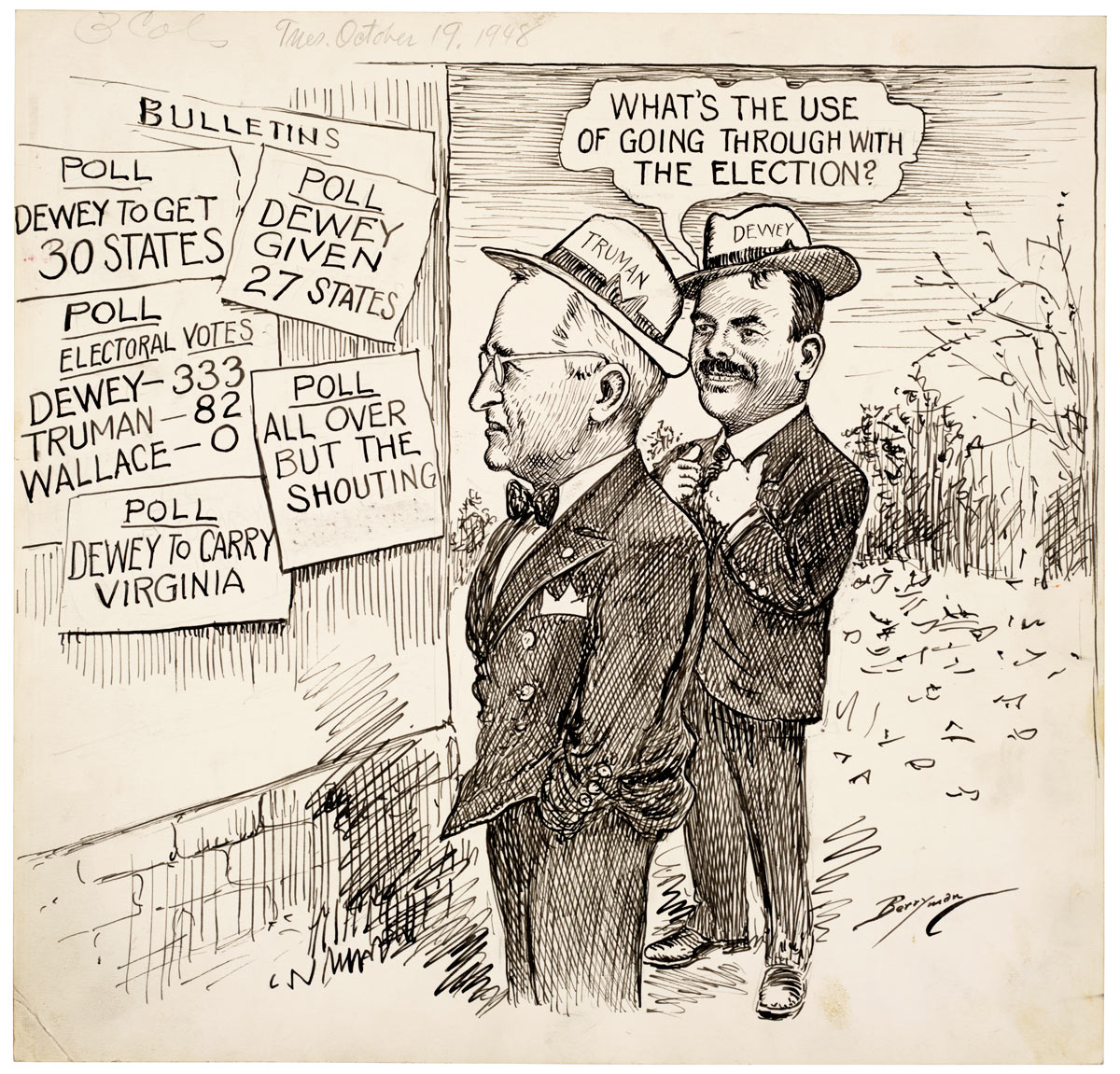My artifact:

Commencement: “So, who here remembers the last presidential election?” It seems like centuries ago, but it was only a year ago. If you paid attention, you might’ve heard and seen constant political ads urging you to do one thing: vote. They were so prevalent, I felt bad for not voting, and I wasn’t even able to vote! Now, I want to consider a bit of a different political ad, from an election a little while ago, that’s urging us NOT to vote.
Narration: Briefly mention the context of the 1948 US presidential election – Harry Truman was the incumbent, but he was relatively unpopular and he wasn’t projected to win a second term; instead, Thomas Dewey was largely favored to emerge victorious from the election
Partitio: This cartoon appeals to commonplaces like voter apathy and “trusting expert opinions” to convey a message of discouraging people from voting; however, this message was unsuccessful
Confirmatio: explain what voter apathy is (my vote doesn’t matter so I’m not going to vote), explain what “expert opinions means” (people with more sophisticated means to determine various outcomes); why was it unsuccessful (Truman won the election; if you tell the opposition not to do something, you’re going to motivate them to do something – this cartoon seems to be pro-Dewey)
Refutation: could argue that the only message conveyed here is just to say that Dewey is favored (kind of frivolous to create a cartoon like this if you’re just going to restate common knowledge)
Conclusion: This message was ineffective because it portrayed the civic in the negative; it argued that the election was unwinnable for Truman and so it was pointless to engage in one’s civic duty. This, of course, wasn’t the case, and I want to conclude by reminding everyone that their voices matter, and that it’s always important to engage in one’s civic duty, regardless of what other people claim.
Hi Matt! I have a few things to say about your outline. First, I like that in your introduction you plan to involve the audience, but also use your own feelings to establish a starting point for your speech. Next, I noticed that, in the early outline, it appears that you will be using the commonplaces lens in your speech. I think you identified two very prominent ones in this cartoon, I especially agree with the voting apathy commonplace. It definitely seems as though Dewey is trying to discourage the public from voting as the experts predict a huge victory regardless of who votes. Finally, it was a good idea to tie your speech together with the final line of the conclusion encouraging us to use our voices. Solid work for your rough draft, I’m sure your speech will be great!
Hi Matt,
I really like how clearly you have structured your argument. I like that you are going to give context as your introduction as this will allow for your ideas to come across more clearly and ensures everyone is in the know. It’s a great idea to tie back your speech by encouraging everyone to vote regardless of what the outcome may be as this is an important activity of civic engagement.
Hi Matt! I really like your introduction. I think you did a great job getting the audience to relate to the topic and get them engaged. The points you make about your commonplaces are clear and make sense. One thing you could add is that the cartoon also seems to make Truman look like a fool for trying to win, which could farther discourage people from voting for him. However, I’m not sure that this would connect to your commonplaces. Overall, your speech seems very well thought-out!